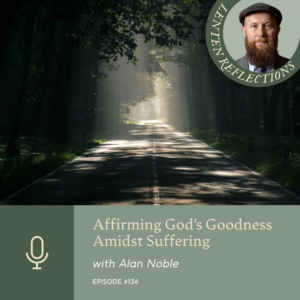I had a recent conversation with my colleague Yuval Levin about gratitude, and in the course of our conversation he said that he considers it to be among the foremost conservative virtues. I agree, and would add that it's one of the more neglected ones.
The link between gratitude and conservatism is based on the precept that human nature is, as the founders believed, decidedly mixed. The line between good and evil runs through every human heart. This life is for all of us, at one point or another, a place of sorrow. And because a decent civilization is hard to build and difficult to sustain, conservatives should be pleased when human institutions and relationships work reasonably well. Perfection and utopia are not (as is the case with some strains within progressivism) the standards for contentment.
I mention all this because these days conservatism, at least in some quarters, is characterized more by its grievances than gratitude. One can sense, at least here and there, a spirit of ressentiment, or a “narrative of injury.” It's the feeling that conservatives are a persecuted minority, combined with a growing rage and weariness with what they perceive to be the multiplying failures all around us.
This is a complicated area to explore, because there are certainly grounds for concern and even anger. Successful political movements depend on passions, including negative ones. As for those on the right who complain that they're targets of slander, it's worth recalling the words of the poet Delmore Schwartz: even paranoids have real enemies. I'd add that it's doubly hard to demonstrate gratitude when a president who holds an ideology quite different than your own is in power. But perhaps that makes gratitude all the more important to acknowledge and embrace.
Gratitude may not be the parent of all the other virtues, but it has an important place in our public life. Adam Smith believed gratitude was essential to a free society, inspiring people to care for others without the threat of coercion or the presence of incentives. “Beneficence is always free, it cannot be extorted by force, the mere want of it exposes to no punishment,” the Chair of Moral Philosophy at the University of Glasgow wrote in The Theory of Moral Sentiments. To oblige a person “by force to perform what in gratitude he ought to perform, and what every impartial spectator would approve of him for performing, would, if possible, be still more improper than his neglecting to perform it,” he added. “But of all the duties of beneficence, those which gratitude recommends to us approach nearest to what it called a perfect and complete obligation.”
Gratitude, for our country and our station in life, helps sand off the edges of anger toward those we disagree with. You will never meet a person in possession of a gracious spirit who is burning with rage toward others. Gratitude is also a close cousin to other important civic sentiments, like sympathy and compassion.
Gratitude is not only an important civic virtue, it's also an efficacious one. It's true enough that if we search long enough and hard enough, we can always discover something to be angry and agitated about—in life and in politics. There is always some heresy to attack, some outrage to condemn, some threat to live in fear of. But resentment is not a very attractive human quality. On the whole, people drawn to a political movement like to feel that those representing the movement are both principled and amiable, philosophically grounded and irenic. This hardly precludes conviction and tough-mindedness when it comes to articulating policy. Democracy was designed for disagreement, and the proper role of an opposition party is to oppose. But anger, personal attack, and extreme language do nothing to expand the appeal of a political movement.
The well-springs of gratitude differ. For some, it's undoubtedly based on a predisposition and presuppositions (see above). For others, fate has smiled upon them. For still others, gratitude is the outworking of faith. In both Judaism and Christianity, for example, gratitude is based on the belief that we are beloved by God, the object of His affection (often the most powerful testimonies of all come from those who retain a thankful heart even in the face of hardships and brokenness in our lives).
John Buchan, in reflecting on his life, said, “I was brought up in times when one was not ashamed to be happy, and I have never learned the art of discontent. I preserve my devotion to things ‘afar from the sphere of our sorrow.' It seems to me that those who loudly proclaim their disenchantment with life have never been really enchanted by it. Their complaints about the low levels they dwell in ring hollow, for they have not known the uplands.”
It is more life-affirming to be in the company of those who never learned the art of discontent, who have known the uplands.
Peter Wehner is a senior fellow at the Ethics and Public Policy Center.

